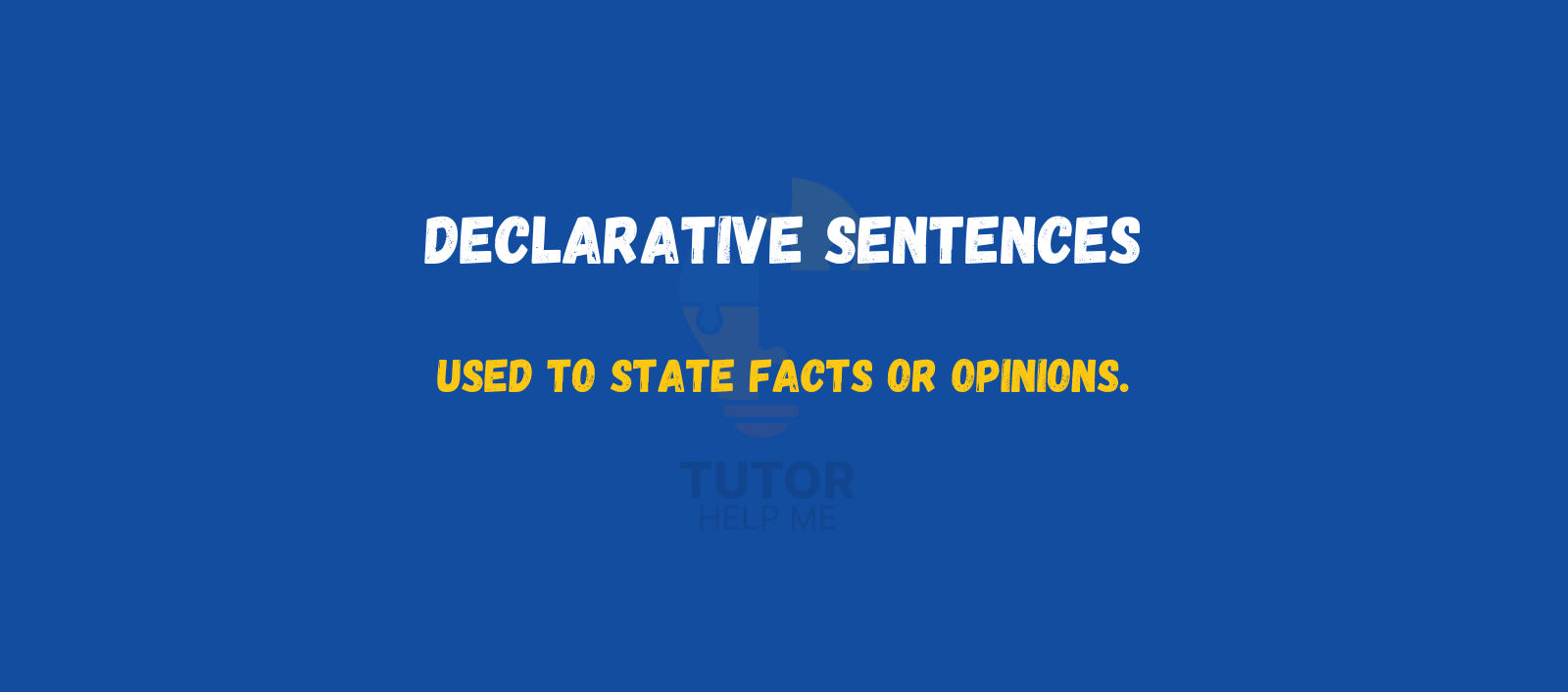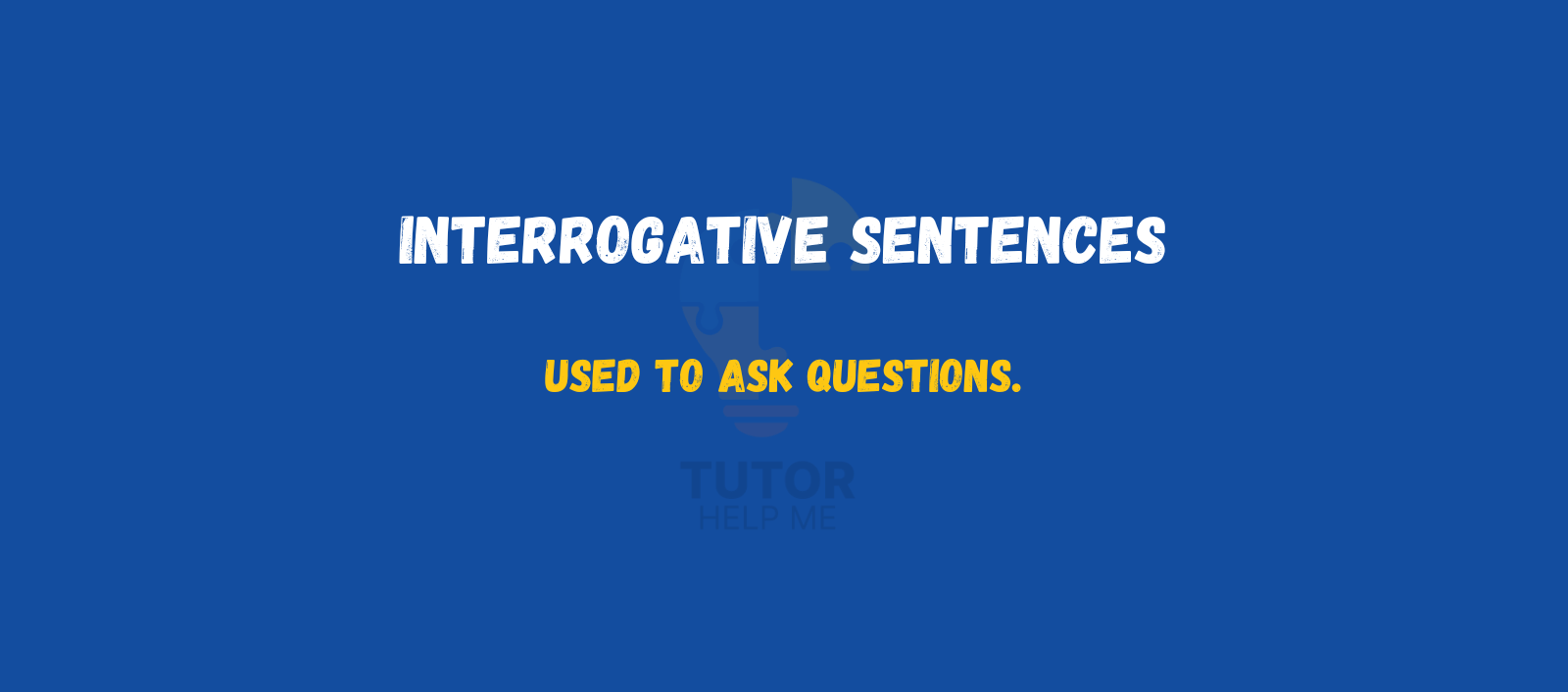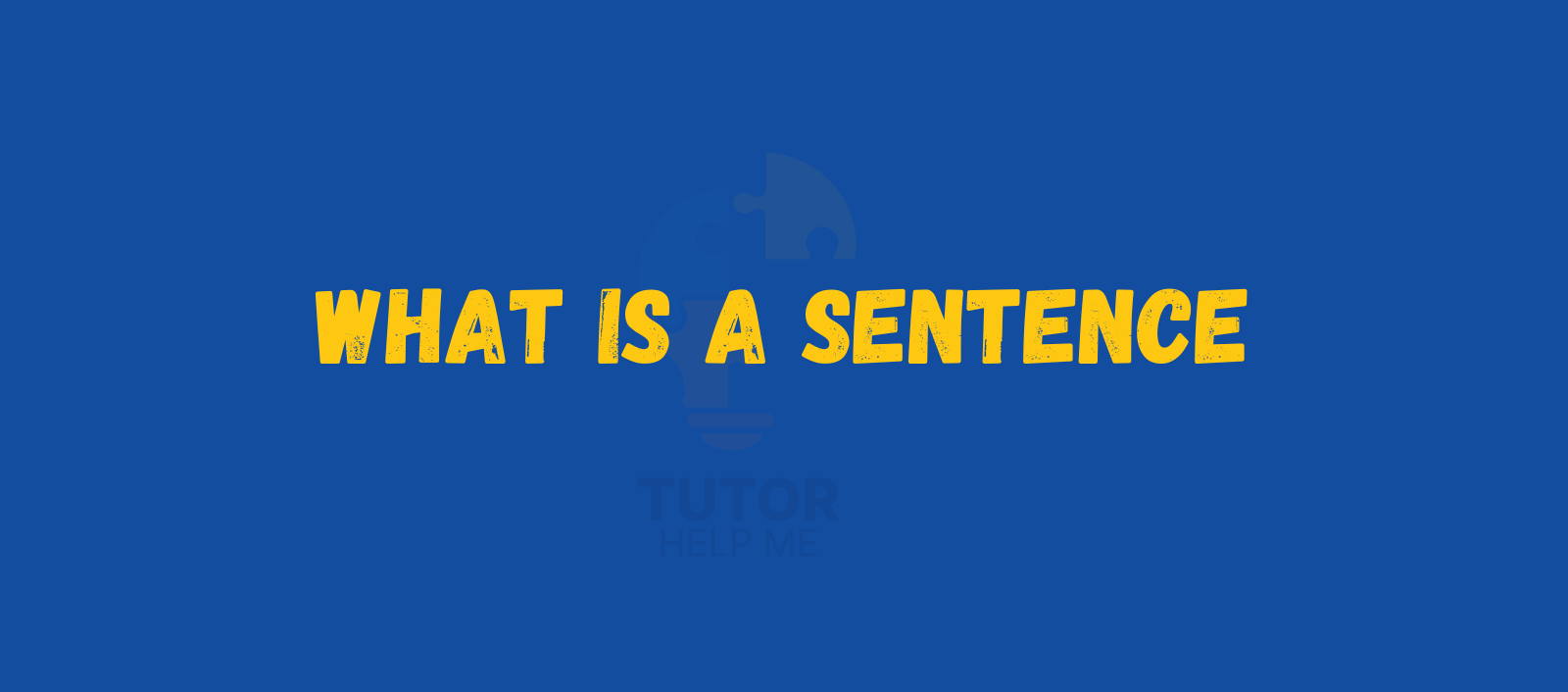A sentence is a group of words that expresses a complete idea. A sentence is the foundation of any language. Whether you’re speaking or writing, using the right sentence makes your message clear and complete.
In this blog, you will learn what is a sentence , how sentence structure works, and the different types of sentences used in English with simple examples to guide you.
What Is a Sentence?
A sentence is a group of words that expresses a complete idea. It starts with a capital letter and ends with a full stop (.), question mark (?), or exclamation mark (!).
Example:
- John (subject) plays the guitar (predicate).
- The dog (subject) is barking loudly (predicate).
- They (subject) are going to the market (predicate).
- My sister (subject) bakes delicious cakes (predicate).
“Learn English Grammar with our 1-On-1 English Tutors.”
Types of Sentences with Examples
Declarative Sentences
Used to state facts or opinions. Ends with a full stop (.)
Examples:
- I enjoy learning English.
- The sun rises in the east.
- She works at a bank.
- We are going to the park.
- They love watching movies.
Learn more about What is a Declarative Sentence? Types, Uses and Examples

Interrogative Sentences
Used to ask questions. Ends with a question mark (?)
Examples:
- What time is the meeting?
- Are you feeling well today?
- Do you like chocolate?
- Where are my keys?
- Is it raining outside?
Learn more about Interrogative Sentence | Uses and Types with Examples

Imperative Sentences
Used to give commands or instructions. Can end with a full stop or exclamation mark.
Examples:
- Please close the door.
- Turn off the lights.
- Sit down quietly.
- Don’t touch that!
- Follow the instructions carefully.
Learn more about What Are Imperative Sentences? Types and Usage with Examples
Exclamatory Sentences
Used to express strong emotion. Ends with an exclamation mark (!)
Examples:
- What a beautiful sunset!
- I can’t believe this!
- That’s amazing!
- Oh no, I forgot my keys!
- We won the game!
Read more about Exclamatory Sentence | Definition, Examples & Uses
Conditional Sentences
Show cause and effect using “if,” “unless,” or similar words.
Examples:
- If you study hard, you will pass the test.
- I’ll call you if I reach home early.
- If it rains, we’ll stay indoors.
- Unless you hurry, you’ll miss the train.
- If I were rich, I would travel the world.
Learn more about Conditional Sentences | Definition, Types and Examples
Negative Sentences
Express something is not true. Use “not,” “never,” or “no.”
Examples:
- She is not ready.
- I don’t like spicy food.
- We didn’t go to the party.
- He has no idea.
- They won’t attend the meeting.
Learn more about What Is a Negative Sentence? Ways to Form a Negative Sentence
Affirmative (Positive) Sentences
Express a true or positive statement.
Examples:
- He is happy today.
- I love this song.
- We have finished the project.
- They will join us later.
- She speaks English fluently.
Read more What is an Affirmative Sentence? Formation and Examples
Interrogative-Tag Sentences
End with a short question tag.
Examples:
- You’re coming, aren’t you?
- It’s cold, isn’t it?
- He didn’t call, did he?
- We should go now, shouldn’t we?
- She can drive, can’t she?
Exclamatory Questions
These look like questions but show emotion, not real inquiry.
Examples:
- What were you thinking?!
- How could you do that?!
- Why would she lie to me?!
- Isn’t this amazing?!
- Who would’ve thought?!
Sentence Structure
Sentence structure refers to how the parts of a sentence are arranged.
Simple Sentences
Has one subject and one verb. Expresses a complete idea.
Examples:
- I like ice cream.
- He plays football.
- She is tired.
- The baby is sleeping.
- We watched a movie.
Compound Sentences
Has two independent clauses joined by a conjunction (and, but, or, so, etc.).
Examples:
- I wanted to go out, but it started raining.
- She sings well, and she plays the piano.
- You can stay home, or you can join us.
- He studied hard, so he passed the test.
- I was late, yet I made it on time.
Complex Sentences
Has one main clause and one or more dependent clauses.
Examples:
- I slept early because I was tired.
- When she called, I was busy.
- If it rains, we will stay inside.
- Although he was sick, he went to work.
- Since I forgot, I had to go back.
Compound-Complex Sentences
Has at least two main clauses and one or more dependent clauses.
Examples:
- I went to the store because we needed milk, and I bought bread too.
- Although it was raining, she went outside, and she took her umbrella.
- He cooked dinner, but I cleaned the kitchen after I finished work.
- They didn’t come because they were tired, and we missed them.
- I read the book while she painted, and we both relaxed.
Why Choose Tutorhelpme
🎓 Qualified English Tutors – Experts who simplify grammar, writing, and sentence building
🧠 1-on-1 Online Lessons – Personalised teaching that matches your learning speed and style
🕒 Flexible Scheduling – Book lessons anytime that fits your routine
💬 Clear Communication Skills – Improve sentence usage, speaking fluency, and written expression
📚 Homework and Exam Help – Get support with schoolwork, test prep, and grammar corrections
💰 Affordable Rates – High-quality tutoring at prices that work for your budget
Read More Parts of Speech – All 8 Types With Examples
FAQ’s
What is a clause in sentence structure?
A clause is a group of words with a subject and verb; it can be independent or dependent.
How is sentence length important in writing?
Varying sentence length improves readability, keeps readers engaged, and allows complex and simple ideas to flow naturally.
Can a sentence start with “because”?
Yes, if it’s part of a complete sentence with both a dependent and independent clause. Otherwise, it’s a fragment.
What is sentence fragmentation?
A sentence fragment is an incomplete sentence missing a subject or verb. It does not express a complete thought.

